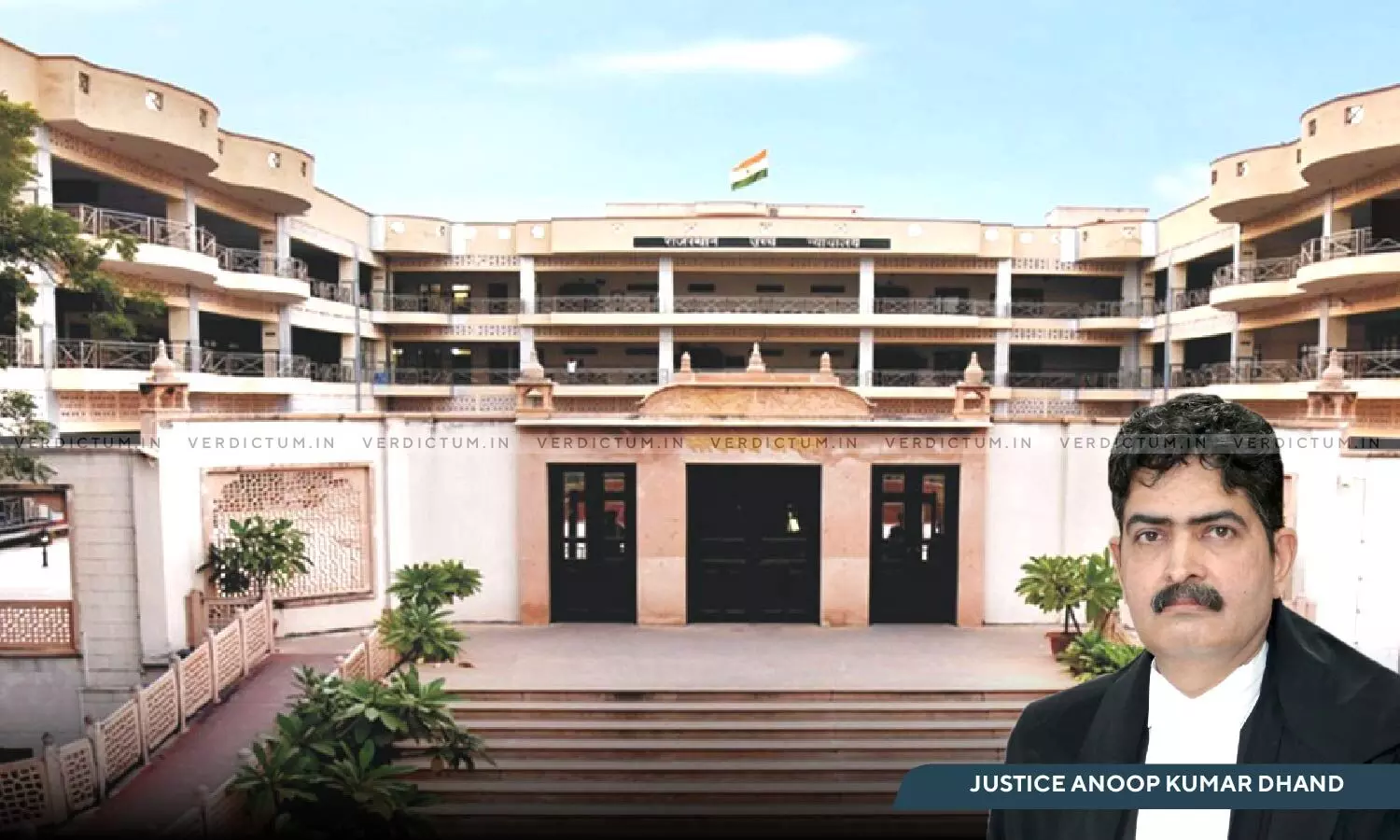
Dispute Under Apprentices Act, 1961 Cannot Be Treated As Industrial Dispute As Provisions Of Labour Law Are Not Applicable: Rajasthan HC
 |
|The Rajasthan High Court, Jaipur Bench has held that the dispute under Apprentices Act, 1961 cannot be treated as an industrial dispute as the provisions of labour law are not applicable.
The Court observed this in a batch of writ petitions filed by Indian Oil Corporation Limited against the awards passed by the Industrial Tribunal.
A Single Bench of Justice Anoop Kumar Dhand said, “The dispute under the Act of 1961 cannot be treated as industrial dispute as the provisions of the labour law are not applicable in view of Section 18 of the Act of 1961. Reference of the industrial dispute for adjudication to the Tribunal and its award is illegal and without jurisdiction.”
Advocate Sukriti Kasliwal represented the petitioner while Advocate Kunal Rawat represented the respondents.
In this case, the counsel for the petitioner submitted that the respondents were never engaged as workmen rather they were engaged as ‘apprentice’ and a contract of apprenticeship was executed between the parties for 11 months and during these 11 months apprenticeship training was provided to the respondents and after completion of the said period the agreement came to an end. It was further submitted that the respondents did not fall within the definition of workmen, hence the Labour Court was not having any jurisdiction to entertain the claim petition filed by the respondents.
It was also contended that as per Section 18 of the Apprentices Act, 1961 the provisions of labour law are not applicable and that, several documents were submitted on the record before the Industrial Tribunal to show that the respondents were engaged as apprentice. The Tribunal passed an award directing the petitioner to reinstate back the respondents in service with continuity and 50% back wages. As per the petitioner, interference of the Court was warranted and the award passed by the Labour Court was sought to be quashed and set aside.
The High Court after hearing the contentions of the counsel noted, “Bare perusal of the record indicates that all the respondents have executed Apprenticeship Contract/agreement for 11 months by reading the terms and conditions mentioned therein from their naked open eyes. Hence, they are bound by the same and they are estopped to challenge the same after expiry of their term as Apprentice. Now, they cannot claim themselves as ‘Workmen’ to invoke the jurisdiction of the Labour Court under the provision of the Act of 1947 as the same was not applicable in their case as per Section 18 of the Act of 1961.”
The legal issue which was required to be adjudicated in the petitions was, whether the provisions of Apprentices Act, 1961 or the provisions of the Industrial Disputes Act, 1947 will apply in the set of the petitions?
The High Court said, “It is well established principle of law and it is a well know fact that in a given case Court can iron out the fabric but it cannot change the texture of the fabric. It cannot enlarge the scope of interpretation when the language of the apprenticeship agreement is plain and unambiguous. It cannot add or subtract the words to the same or read something into which is not there. It cannot rewrite or recast the apprenticeship agreement of respondents.”
The Court added that when the apprenticeship agreement executed by the respondents indicates that they were engaged as ‘Apprentice’ then with stretch of no imagination the respondents can be treated as ‘Workman’.
“Considering the facts and circumstances of this case, this Court is of the considered opinion that the State Government was not competent to make a reference under Section 4(K) of the Act of 1947 and the Tribunal has miserably failed while making the award when specific plea was raised about the maintainability of the proceedings in view of the fact that it does not have the jurisdiction to decide the dispute in view of Section 18 of the Act of 1961”, observed the Court.
Accordingly, the High Court allowed the petitions and quashed the awards passed by the Tribunal.
Cause Title- Indian Oil Corporation Limited v. Narendra Singh Shekhawat & Anr.